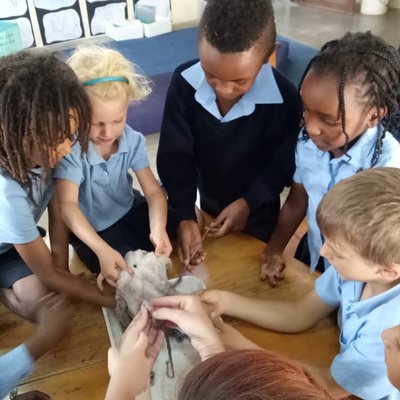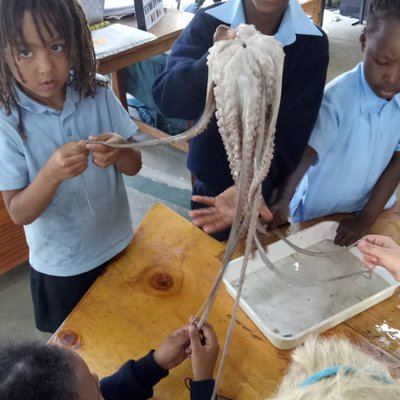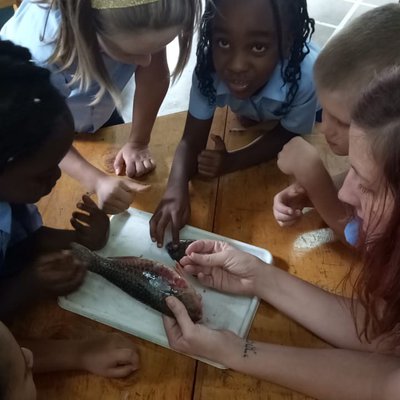There's something fishy going on in Year 1/2
7th October 2018
Year 1/2 have been continuing their under the sea topic with some hands-on science - investigating fish, octopus and shrimp right their in their classrooms.
Amid squeals of both delight and disgust, the children got up close and personal with the creatures, learning words like fins, scales, gills, and tentacles. While some children were reluctant to pick up, or even touch the fish, others were more than happy to dive in and see what they felt like.

"Yuck! The tentacles are really slimy!" - Joshua
"My hands smell so fishy now!" - Ingrid
"Where are the gills? Can we look inside?" - Tom

"I wonder where the ink is inside the octopus." - Colin
"Wow, look at the eyes. They look like our eyes!" - Lucia
Children need their senses engaged. Hands-on science activities let children do just that, giving them a chance to engage multiple senses. Additionally, children learn by doing. Hands-on science encourages the children to DO something – observe, ask questions, touch, smell, experiment.

Allowing children to really get into science gives them the chance to make discoveries on their own. They’ll be more likely to remember a learning experience if it’s just that . . . a real experience.
Critical thinking skills are enhanced during such science activities. The children can ask the why, how, and what questions. Even better, they can help answer the questions themselves. They can learn the scientific process along the way!






